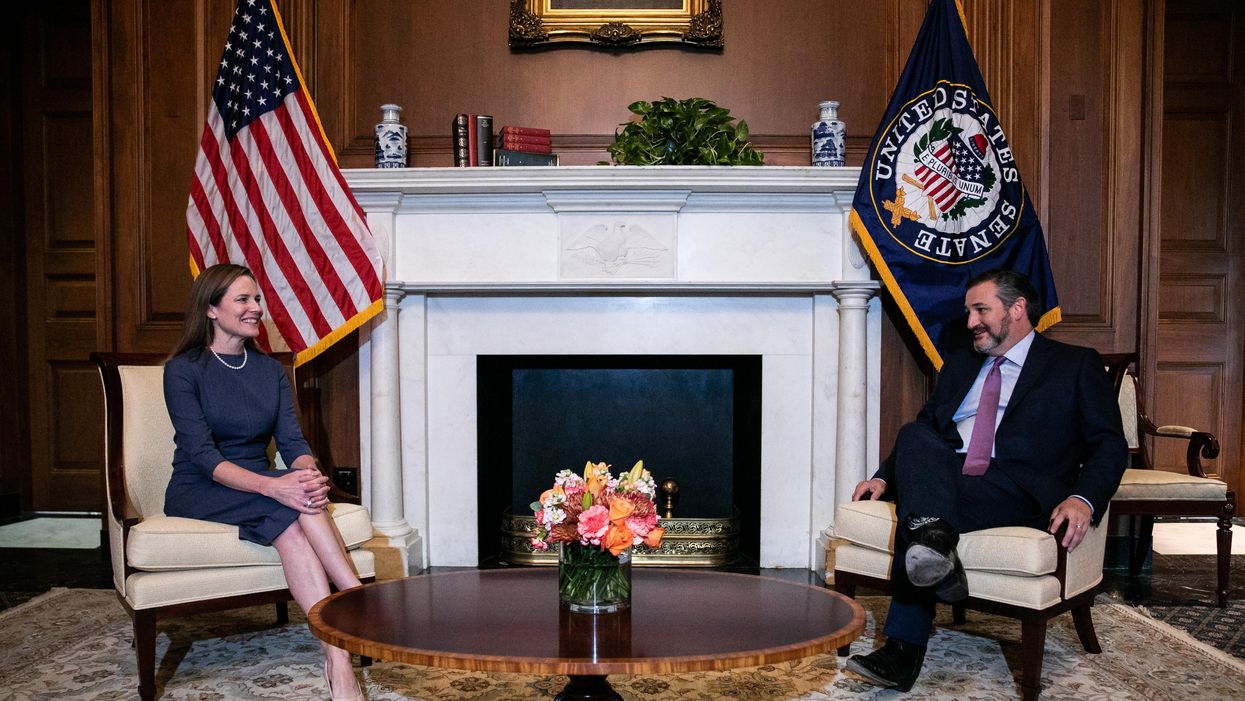On Monday, the Supreme Court struck down a federal anti-bribery law, with the conservative majority saying the restrictions imposed by Congress constitute a violation of candidates’ First Amendment right to free speech.
This case, known as FEC v. Ted Cruz for Senate, opens the door for candidates to raise unlimited sums after an election ends in order to repay personal loans to their campaigns. In 2001, Congress capped the amount that can be repaid to candidates using post-election fundraising at $250,000 to prevent wealthy individuals and lobbyists from essentially giving money to lawmakers, including some who profited off the loans by charging their own campaigns interest.
The Supreme Court has a mixed history in its rulings on campaign finance cases. While the court has upheld some of the basic underpinnings of election law, it has also ripped up others. While spending on political campaigns has exploded, advocacy groups have stepped up their efforts to achieve further reforms in the name of fighting corruption.
According to the court tracker Oyez, the Supreme Court has handled nearly 30 cases related to campaign finance since 1957. Here are some of the most influential decisions that have either bolstered the rules or tossed them in the trash.
Buckley v. Valeo (1976)
In 1971, Congress passed the Federal Election Campaign Act, a post-Watergate law putting into place many of the modern regulations governing campaign financing, including contribution limits and reporting requirements.
Five years later, the Supreme Court considered whether the restrictions imposed by FECA violated the First Amendment, issuing a divided ruling.
The justices decided that capping an individual’s contributions to political campaigns and candidates "served the government's interest in safeguarding the integrity of elections” and therefore did not run afoul of the Constitution. However, any limits on spending by campaigns violates the freedoms of speech and association.
The decision served another purpose, dividing political advertising into “express advocacy,” which explicitly endorses or opposes candidates for office, and “issue advocacy,” which addresses issues rather than candidates. The court rules that independent ads that fall into the express advocacy category are subject to federal disclosure requirements, but issue advocacy spending is exempt.
Nixon v. Shrink Missouri Government PAC (2000)
The 1976 Buckley decision permitted the government, through the Federal Election Commission, to set caps on donations to federal campaigns. Twenty-four years later, the court addressed donation limits in state campaigns, permitting Missouri to institute a cap of its own.
McConnell v. Federal Election Commission (2003)
In 2002, Congress passed the Bipartisan Campaign Reform Act, which banned soft money, unregulated donations to political organizations for “party building” activities rather than candidate advocacy.
The Supreme Court upheld BCRA, determining there was a link between large, soft-money donations and corruption, or at least the appearance of corruption.
Citizens United v. Federal Election Commission (2010)
This is the case most often cited by advocates for greater regulation of campaign financing who believe it has opened the floodgates for corruption.
In addition to barring soft money, the Bipartisan Campaign Reform Act prohibited campaigns from running ads mentioning candidates on broadcast, cable and satellite services within 30 days of a primary or 60 days of a general election.
The FEC, under the guidance of the BCRA, prevented the conservative advocacy nonprofit Citizens United from running an anti-Hillary Clinton movie during the 2008 campaign.
After upholding part of BCRA in 2003, the court struck down this restriction, ruling that the First Amendment allows corporate funding of independent political broadcasts. The justices did leave intact a provision that requires electioneering communication to include disclaimers and disclosure of sponsors.
The Citizens United ruling would be applied to another case that same year. The D.C. Circuit Court of Appeals struck down the caps on individuals’ contribution to super PACs, politically active not-for-profits, unions and other groups that make independent expenditures.
McCutcheon v. Federal Election Commission (2014)
The Bipartisan Campaign Reform Act faced yet another challenge in 2014. That law set a total limit that individuals may give to candidates, parties and political action committees in each two-year election cycle.
While leaving intact the limits on donations to each campaign, party or committee, the Supreme Court struck down the aggregate limits, saying those caps do not prevent corruption and are unconstitutional.
Wealthy individuals may now donate unlimited sums to political organizations, and the ruling paved the way for the creation of joint fundraising committees, through which campaigns and parties raise money together and split the proceeds.
This ruling opened up opportunities for wealthy donors to give to as many political entities as they want. It also led to the creation of joint fundraising committees — partnerships in which campaigns and party committees collect one large check from each donor and split the proceeds.



















 Senate Committee on Commerce, Science, and Transportation ranking member Sen. Maria Cantwell (D-WA) (R) questions witnesses during a hearing in the Russell Senate Office Building on Capitol Hill on February 10, 2026 in Washington, DC. The hearing explored the proposed $3.5 billion acquisition of Tegna Inc. by Nexstar Media Group, which would create the largest regional TV station operator in the United States. (Photo by Chip Somodevilla/Getty Images)
Senate Committee on Commerce, Science, and Transportation ranking member Sen. Maria Cantwell (D-WA) (R) questions witnesses during a hearing in the Russell Senate Office Building on Capitol Hill on February 10, 2026 in Washington, DC. The hearing explored the proposed $3.5 billion acquisition of Tegna Inc. by Nexstar Media Group, which would create the largest regional TV station operator in the United States. (Photo by Chip Somodevilla/Getty Images)
